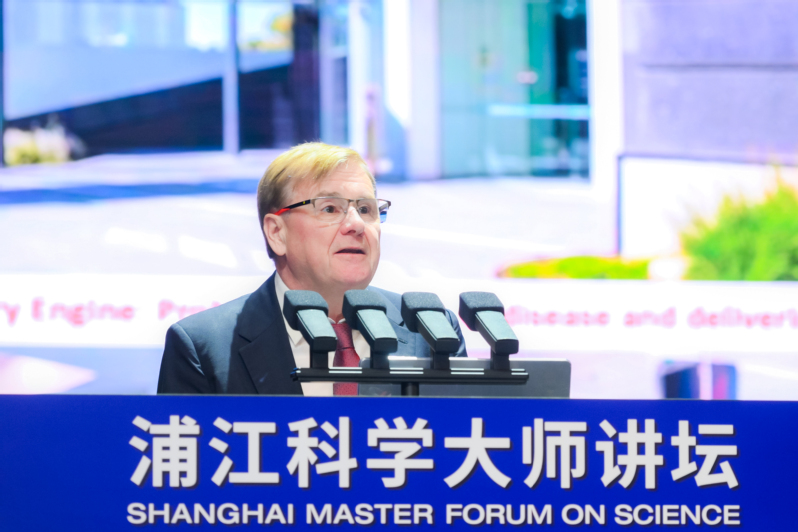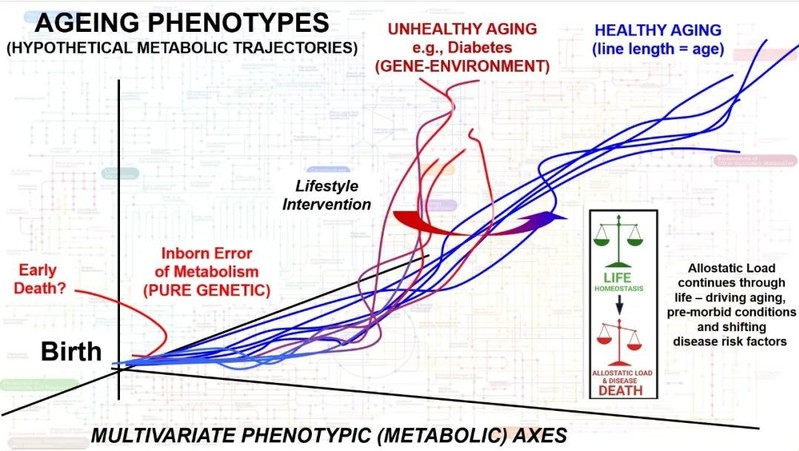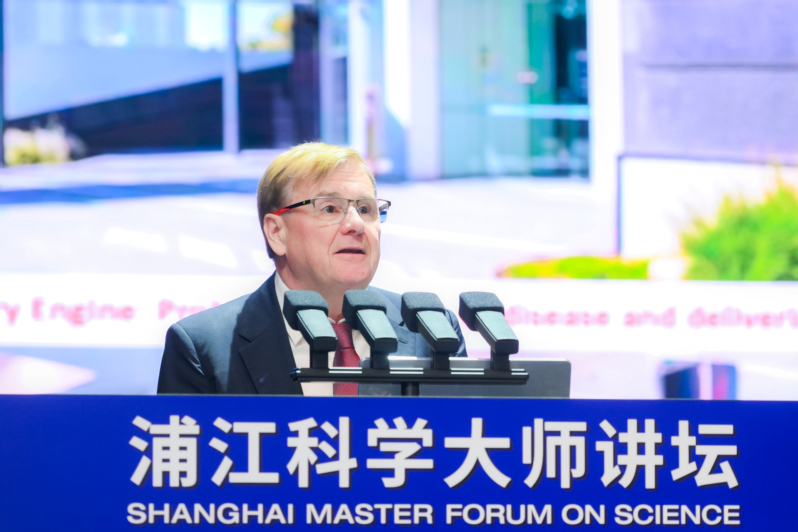
How to live a long, healthy, and happy life?
Hailed as the “Father of Metabolomics”, Jeremy K. Nicholson, Fellow of the Academy of Medical Sciences (UK), Director of the Australian National Phenome Centre, and Honorary Professor at Fudan University’s School of Life Sciences, emphasized “genes alone are insufficient to understand health and disease”, stressing the dynamic interplay between human genes and environmental factors—such as diet, air quality, electronic device usage, and the microbiome—as critical to decoding longevity and disease risks during his keynote speech at the 10th Shanghai Master Forum on Science on April 1.

Nicholson underscored that human health is shaped not just by 20,000 human genes but by trillions of microbial genes interacting within the body. For instance, gut microbes (weighing about 1 kg per person) account for 8% of BMI variation and link directly to conditions like diabetes and autism. Additionally, in the blood of patients with long-term COVID-19 sequelae, inflammatory factors and lipoprotein disorders together form a “metabolic risk space”, indicating a sharp increase in the risk of cardiovascular and neurodegenerative diseases.
These “butterfly effects” suggest that traditional medical models are no longer sufficient to address modern health challenges. He highlights the significance of phenomics for human health and disease.
Phenomics medicine, through holistic analysis of gene-environment interactions, offers novel solutions to medical challenges. It integrates metabolic, microbial, and environmental data to map health trajectories and disease pathways.

Ageing phenotypes (hypothetical metabolic trajectories)
Nicholson illustrated the importance of phenomics by analyzing London’s mortality trends over the past 400 years. In 1632, the leading causes of death were infectious diseases and childhood illnesses, with high maternal and infant mortality rates. These data demonstrate that health issues are closely related with environmental and societal factors, which is a crucial research area of phenomics.
Nicholson highlighted an alarming modern health trend, particularly among younger generations. In the UK, for instance, 50% of children do not engage in regular physical activity, and many teenagers begin drinking alcohol before the age of 16. These habits increase the risk of chronic inflammation and insulin resistance.
Addressing global health challenges, Nicholson stressed the key role of international collaboration. In 2018, Fudan launched the International Human Phenome Project (Phase I), China’s first large-scale global initiative in this field, led by JIN Li, President of Fudan University and Academician of the Chinese Academy of Sciences.
As a co-founder and council member of the project’s international consortium, Nicholson likened the effort to “using the same recipe worldwide”—ensuring standardized methodologies to unify research outcomes. He unveiled a vision for an international phenomics research network, connecting cities from Shanghai to Perth, Doha to Cambridge.

WU Xinbao (1st from the left), vice chairmen of CPPCC Shanghai Committee, attended the forum.
JIN Li (1st from the right) presided over the forum.
(END)
Writer:HU Chenxin
Proofreader:WANG Jingyang
Editor: WANG Mengqi, LI Yijie





